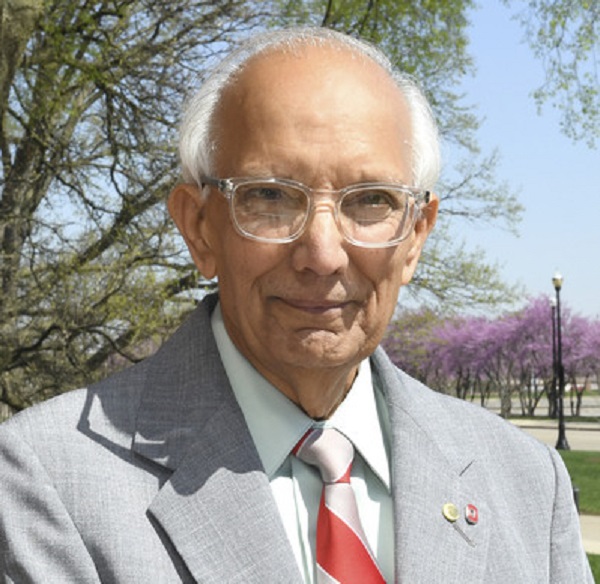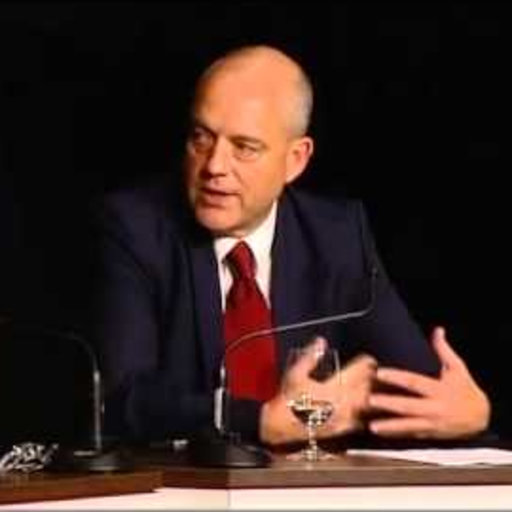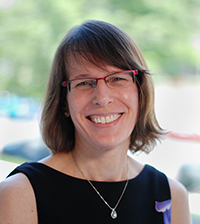User Ideas / Prospects
- Roles: Design and develop farming machinery, equipment, and tools; implement irrigation and drainage systems.
- Key Skills and Tools:
- Mechanical Design: Use of CAD software like AutoCAD, SolidWorks, and CATIA for designing machinery.
- Fluid Mechanics & Hydraulics: Understanding hydraulic systems and pumps for irrigation and drainage.
- Structural Engineering: Designing farm structures using tools like Revit for drafting and structural analysis.
- Environmental Impact Assessment: Familiarity with environmental analysis tools like COMSOL Multiphysics.
- Roles: Design efficient irrigation systems, analyze soil and weather data, and manage water resources.
- Key Skills and Tools:
- GIS and Mapping Software: Use ArcGIS, QGIS, or AutoCAD Civil 3D for designing water distribution systems.
- Hydrology: Knowledge of hydrologic models and tools like HEC-RAS for flood and water flow simulation.
- Soil Moisture Sensors: Familiarity with installing and interpreting data from soil sensors (e.g., TDR and Capacitance Probes).
- Water Management: Knowledge of Evapotranspiration (ET) rates and irrigation scheduling software like CropManage.
- Roles: Implement precision farming technologies using GPS, sensors, and drones.
- Key Skills and Tools:
- GIS and Remote Sensing: Use ArcGIS, ENVI, and Erdas Imagine to analyze satellite imagery and map fields.
- Drones (UAVs): Operate drones for aerial surveys and analysis using software like DroneDeploy and Pix4D.
- Data Analytics: Analyzing farm data using Python, R, and MATLAB to optimize input use (e.g., fertilizers, water).
- GPS Technology: Understanding of GPS-enabled equipment for precision mapping of fields (e.g., Trimble and John Deere precision farming systems).
- Roles: Design, test, and maintain agricultural machinery such as tractors, harvesters, and irrigation systems.
- Key Skills and Tools:
- Mechanical Engineering: Use of SolidWorks, ANSYS, or AutoCAD to design and simulate machinery.
- Automation and Robotics: Knowledge of programmable logic controllers (PLCs) and industrial robotics (e.g., Siemens, Allen-Bradley).
- Machinery Maintenance: Diagnostics tools like CAT Electronic Technician (ET) and JDLink for real-time monitoring of machinery health.
- Energy Efficiency: Optimization using tools like MATLAB for improving fuel efficiency in equipment.
- Roles: Minimize environmental impact of farming practices, manage agricultural waste, and improve soil health.
- Key Skills and Tools:
- Sustainability Assessment Tools: Use of SimaPro or GaBi for lifecycle analysis and evaluating the environmental impact of farm practices.
- Waste Management Systems: Knowledge of designing manure and composting systems using AutoCAD and HydroCAD.
- Soil Conservation Technologies: Implementing tools like WEPP (Water Erosion Prediction Project) for soil erosion control.
- Renewable Energy: Working with solar and bioenergy systems, using PVSyst for solar energy simulation.
- Roles: Design food processing systems for packaging, storing, and preserving agricultural products.
- Key Skills and Tools:
- Process Automation: Use of PLCs and SCADA systems (e.g., Wonderware, LabVIEW) to automate food processing systems.
- Thermodynamics & Refrigeration: Design refrigeration and thermal processing systems using tools like AutoCAD MEP or SolidWorks Flow Simulation.
- Packaging Technology: Familiarity with Esko for packaging design and ArtiosCAD for structural packaging solutions.
- Quality Control: Use of Six Sigma methodologies and software like Minitab for process optimization.
- Roles: Design and implement strategies to manage water resources and prevent soil erosion.
- Key Skills and Tools:
- Soil Science: Use of soil analysis software like Hydrus to model water movement and retention in soil.
- Watershed Management: Familiarity with tools like SWAT (Soil and Water Assessment Tool) for modeling watersheds and analyzing land use impact on water flow.
- Erosion Control Technologies: Use of Civil 3D and HEC-HMS for designing drainage and erosion control structures.
- Land Restoration: Knowledge of reforestation, crop rotation planning, and the use of sustainable land management software.
- Roles: Implement cutting-edge technologies such as robotics, IoT, and AI to optimize farm operations.
- Key Skills and Tools:
- Robotics and Automation: Use of ROS (Robot Operating System) and programming in Python or C++ for automating agricultural tasks.
- Internet of Things (IoT): Implement IoT solutions using platforms like AWS IoT or Azure IoT Hub to monitor and manage farm equipment remotely.
- AI and Machine Learning: Build AI models using frameworks like TensorFlow or PyTorch for predictive analytics in crop management.
- Drone and Sensor Integration: Develop real-time monitoring systems with platforms like ThingSpeak or IBM Watson IoT.
- Roles: Develop systems to manage, store, and transport crops post-harvest.
- Key Skills and Tools:
- Refrigeration Systems: Design cold storage systems using Revit MEP or AutoCAD MEP to manage temperature and humidity.
- Supply Chain Management: Use of SAP or Oracle Supply Chain Management for optimizing logistics and distribution of perishable goods.
- Packaging Engineering: Develop sustainable packaging using tools like ArtiosCAD for 3D modeling and Esko Studio for visual packaging design.
- Quality Assurance: Implement quality control systems using HACCP (Hazard Analysis Critical Control Point) and tools like LabWare LIMS.
- Roles: Conduct research on new agricultural technologies and improve existing ones through trials and experimentation.
- Key Skills and Tools:
- Statistical Analysis: Use of SPSS, R, or SAS for analyzing experimental data and interpreting results.
- Lab Equipment and Experimentation: Operate farm research equipment, data loggers, and field sensors (e.g., LI-COR for environmental measurements).
- Experimental Design Tools: Use of software like Design-Expert or Minitab for designing and analyzing agricultural experiments.
- Collaboration Platforms: Share research findings using collaborative platforms such as Mendeley or EndNote for citation management.
This list highlights the specific tools and knowledge required for each role in agricultural engineering, ensuring that engineers are equipped with the right expertise to advance farming technology and sustainability.
Notable Asian agricultural engineers, scientists, and innovators who have made remarkable contributions to agricultural development in Asia. Their work has improved food security, introduced new technologies, and empowered smallholder farmers, contributing to the transformation of agriculture across the continent.
Key Asian Agricultural Engineers, Scientists, and Innovators

- Contribution: Known as the "Father of Hybrid Rice," Yuan Longping developed the first high-yielding hybrid rice varieties, which significantly increased rice production and helped alleviate hunger in China and other Asian countries.
- Impact: His innovations in hybrid rice have been adopted worldwide, helping feed billions of people.
- Famous Quote: "To make a greater contribution to mankind, we should not only meet the needs of China but also help feed the world."

- Contribution: Known as the "Father of the Green Revolution" in India, Swaminathan introduced high-yielding varieties of wheat and rice that helped India achieve self-sufficiency in food production during the 1960s and 70s.
- Impact: His work prevented famines in India and significantly improved the country’s food security.
- Famous Quote: "If agriculture goes wrong, nothing else will have a chance to go right."
3. William Dar (1953–Present) – Philippines
- Contribution: Dar is a leading agricultural scientist and former Secretary of Agriculture in the Philippines. He has been instrumental in promoting sustainable farming practices and crop diversification in Asia.
- Impact: His work at the International Crops Research Institute for the Semi-Arid Tropics (ICRISAT) has improved food security in drought-prone areas through innovations in crop production and soil management.
- Famous Quote: "Agriculture must be resilient, sustainable, and inclusive to tackle the challenges of climate change and food security."

- Contribution: An agricultural economist, Hossain was a champion of rural development and food security in Bangladesh. He worked at the International Rice Research Institute (IRRI) and led efforts to improve rice productivity in Asia.
- Impact: His research helped increase rice yields, reduce hunger, and improve livelihoods for millions of farmers in Asia’s rice-growing regions.
- Famous Quote: "Agricultural research and innovation are the pillars of food security in Asia
5. Sayed Azam-Ali (1956–Present) – Malaysia: A leading researcher on underutilized crops and sustainable agriculture, Azam-Ali focuses on food crops that can improve nutrition and food security in developing nations.
Famous Quote: "We must broaden our food base to ensure food security in the face of climate change and population growth."
Continuing the LegacyThese Asian agricultural engineers, scientists, and innovators have made significant contributions to the development of sustainable agricultural practices, food security, and innovative technologies. Their efforts in biotechnology, soil management, precision farming, and water conservation have improved productivity, empowered smallholder farmers, and ensured the continent’s ability to meet the challenges of feeding a growing population in the face of climate change.
Note this list I did text without any particular order and best of my memory text me if you don't agree any of i mentioned or someone i Missed.
modern-era agricultural engineers, including their famous quotes and the addition of M. S. Swaminathan, one of the most significant contributors to agricultural development:
1. M. S. Swaminathan (1925–2023)
- Contribution: Known as the father of the Green Revolution in India, Swaminathan worked on introducing high-yielding varieties of wheat and rice, helping India achieve self-sufficiency in food production.
- Impact: His work prevented famines in India and contributed significantly to global food security.
- Famous Quote: "If agriculture goes wrong, nothing else will have a chance to go right."

- Contribution: Founder of International Development Enterprises (iDE), Polak developed affordable farming technologies like low-cost drip irrigation systems for smallholder farmers in developing countries.
- Impact: His innovations have helped millions of small-scale farmers in poverty-stricken regions increase their yields and income, combating hunger and improving livelihoods.
- Famous Quote: "The only way to end poverty is to create jobs and incomes for those who live on less than a dollar a day."

- Contribution: Founder of East-West Seed, Groot developed high-quality vegetable seeds suited to the tropical climates of Southeast Asia and other developing regions.
- Impact: His work has dramatically increased food security and smallholder farmer incomes by providing access to better seeds, leading to higher yields of nutritious vegetables.
- Famous Quote: "Seeds are the starting point of agriculture. They determine the quality of life for millions of small farmers around the world."

- Contribution: An agricultural economist and engineer, Adesina has been a leading figure in launching initiatives like the Alliance for a Green Revolution in Africa (AGRA).
- Impact: His work in fertilizer use, modern farming techniques, and agricultural policy has significantly increased food security across Africa.
- Famous Quote: "The future of Africa’s development depends on agriculture, and agriculture depends on youth."

- Contribution: A plant pathologist and geneticist, Ronald focuses on genetically engineering rice to be resistant to flooding and other climate challenges.
- Impact: Her work has improved crop resilience to climate change, particularly in flood-prone regions of Asia, helping to stabilize food production.
- Famous Quote: "To help feed a growing population, we need to embrace a broad array of agricultural technologies, including organic farming and genetic engineering."

- Contribution: A soil scientist and agricultural engineer, Lal has been instrumental in promoting techniques that improve soil health and carbon sequestration.
- Impact: His work is vital in combating soil degradation and enhancing agricultural productivity, while also helping mitigate climate change.
- Famous Quote: "Soil is the cornerstone of food security. We need to take care of it as we would take care of ourselves."

- Contribution: An agricultural economist and researcher, Brookes analyzes the economic and environmental benefits of genetically modified (GM) crops.
- Impact: His work has shown how GM crops contribute to increased food production and sustainability, helping to address global hunger.
- Famous Quote: "GM technology is not a magic bullet, but it can play an important part in the solution to global food security."

- Contribution: Nutritionist and agricultural engineer with extensive experience in leading food security programs in Africa, Asia, and Latin America.
- Impact: Woldt focuses on integrating nutrition-sensitive agriculture into programs to reduce hunger and malnutrition, improving food security globally.
- Famous Quote: "Sustainable agriculture is key to improving nutrition and ensuring food security for all."
- Contribution: A climate scientist and agricultural engineer, Lobell studies the effects of climate change on food production and develops strategies to improve crop yields.
- Impact: His work has influenced agricultural policies and practices to address food security in a changing climate.
- Famous Quote: "The future of food security depends on how we adapt to the changing climate."
- Contribution: An agricultural scientist and plant breeder, Ejeta developed drought-resistant and pest-resistant sorghum varieties.
- Impact: His innovations have improved food security in Africa, especially in regions where sorghum is a staple food.
- Famous Quote: "Science is a powerful tool to defeat hunger and poverty, but it requires dedication and global cooperation."
- Contribution: Founder of HarvestPlus, Bouis pioneered biofortification, improving the nutritional value of staple crops like rice, wheat, and maize by breeding them to contain higher levels of essential vitamins and minerals.
- Impact: His work has combated micronutrient deficiencies, improving health and food security in developing countries.
- Famous Quote: "Biofortification is about empowering the poor with access to better nutrition through the crops they grow and eat."
These modern engineers, along with historical figures, have made significant contributions to agriculture, helping to avert global hunger. Their work, from soil health to crop genetics and sustainable farming practices, continues to have a profound impact on ensuring food security for a growing population. Their words reflect their dedication to solving one of the world's most pressing challenges.
Note: This list is based on recent News Materials and not in particular order if you think someone is not deserved on the list or someone i missed please write down in comment.

